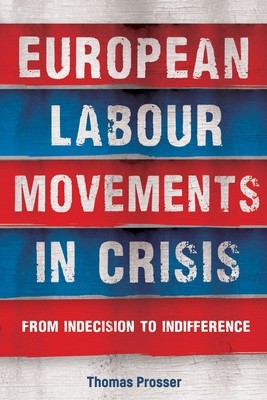
- We will send in 10–14 business days.
- Author: Thomas Prosser
- Publisher: Manchester University Press
- ISBN-10: 1526148056
- ISBN-13: 9781526148056
- Format: 15.6 x 23.4 x 1.1 cm, softcover
- Language: English
- SAVE -10% with code: EXTRA
Reviews
Description
Prosser argues that labour movements respond to European integration in a manner which instigates competition between national labour markets. In an engaging style which will be accessible to scholars, students and policymakers, the book bases its hypothesis on analysis of four countries, Germany, Spain, France and Poland and two processes: the collective bargaining practices of trade unions in the first decade of the Eurozone and the response of trade unions and social-democratic parties to austerity in Southern Europe. In the first process, although unions did not intentionally compete, there was a drift towards zero-sum outcomes which benefited national workforces in stronger structural positions. In the second process, during which a crisis resulting from the earlier actions of labour occurred, lack of solidarity reinforced effects of competition.
EXTRA 10 % discount with code: EXTRA
The promotion ends in 18d.02:39:41
The discount code is valid when purchasing from 10 €. Discounts do not stack.
- Author: Thomas Prosser
- Publisher: Manchester University Press
- ISBN-10: 1526148056
- ISBN-13: 9781526148056
- Format: 15.6 x 23.4 x 1.1 cm, softcover
- Language: English English
Prosser argues that labour movements respond to European integration in a manner which instigates competition between national labour markets. In an engaging style which will be accessible to scholars, students and policymakers, the book bases its hypothesis on analysis of four countries, Germany, Spain, France and Poland and two processes: the collective bargaining practices of trade unions in the first decade of the Eurozone and the response of trade unions and social-democratic parties to austerity in Southern Europe. In the first process, although unions did not intentionally compete, there was a drift towards zero-sum outcomes which benefited national workforces in stronger structural positions. In the second process, during which a crisis resulting from the earlier actions of labour occurred, lack of solidarity reinforced effects of competition.


Reviews